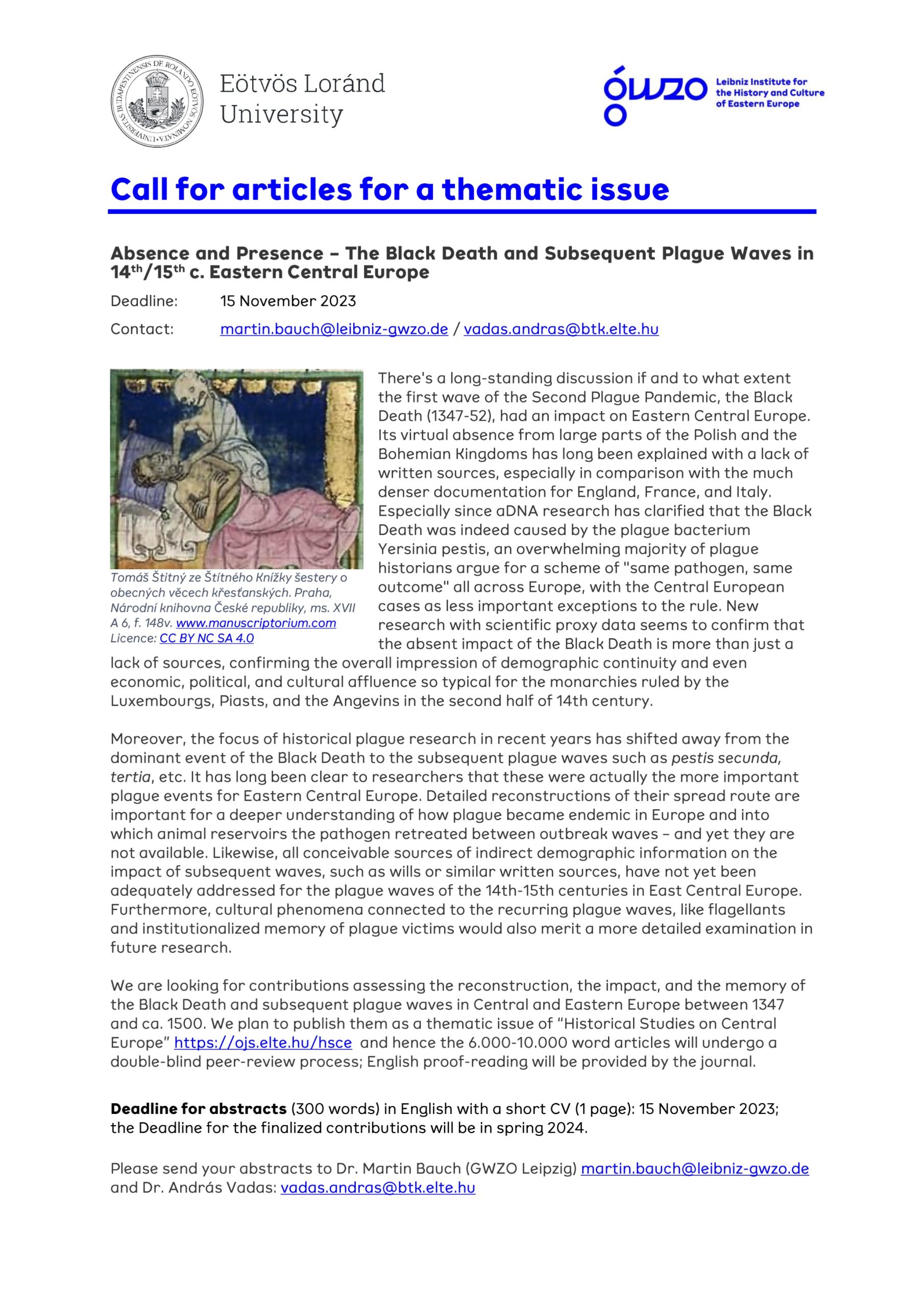Call for Articles: Absence and Presence. The Black Death and Subsequent Plague Waves in 14th/15th c. Eastern Central Europe
Deadline: 15 November 2023
Contact
Dr. Martin Bauch (GWZO Leipzig) martin.bauch@leibniz-gwzo.de
Dr. Andras Vadas: vadas.andras@btk.elte.hu
There’s a long-standing discussion if and to what extent the first wave of the Second Plague Pandemic, the Black Death (1347-52), had an impact on Eastern Central Europe. Its virtual absence from large parts of the Polish and the Bohemian Kingdoms has long been explained with a lack of written sources, especially in comparison with the much denser documentation for England, France, and Italy. Especially since a DNA research has clarified that the Black Death was indeed caused by the plague bacterium Yersinia pestis, an overwhelming majority of plague historians argue for a scheme of “same pathogen, same outcome” all across Europe, with the Central European cases as less important exceptions to the rule. New research with scientific proxy data seems to confirm that the absent impact of the Black Death is more than just a lack of sources, confirming the overall impression of demographic continuity and even economic, political, and cultural affluence so typical for the monarchies ruled by the Luxembourgs, Piasts, and the Angevins in the second half of 14th century.
Moreover, the focus of historical plague research in recent years has shifted away from the dominant event of the Black Death to the subsequent plague waves such as pestis secunda, tertia, etc. It has long been clear to researchers that these were actually the more important plague events for Eastern Central Europe. Detailed reconstructions of their spread route are important for a deeper understanding of how plague became endemic in Europe and into which animal reservoirs the pathogen retreated between outbreak waves – and yet they are not available. Likewise, all conceivable sources of indirect demographic information on the impact of subsequent waves, such as wills or similar written sources, have not yet been adequately addressed for the plague waves of the 14th-15th centuries in East Central Europe. Furthermore, cultural phenomena connected to the recurring plague waves, like flagellants and institutionalized memory of plague victims would also merit a more detailed examination in future research.
We are looking for contributions assessing the reconstruction, the impact, and the memory of the Black Death and subsequent plague waves in Central and Eastern Europe between 1347 and ea. 1500. We plan to publish them as a thematic issue of “Historical Studies on Central Europe” https://ojs.elte.hu/hsce and hence the 6.000-10.000 word articles will undergo a double-blind peer-review process; English proof-reading will be provided by the journal.
Deadline for abstracts (300 words) in English with a short CV (1 page): 15 November 2023; the Deadline for the finalized contributions will be in spring 2024.
Please send your abstracts to Dr. Martin Bauch (GWZO Leipzig) martin.bauch@leibniz-gwzo.de and Dr. Andras Vadas: vadas.andras@btk.elte.hu

